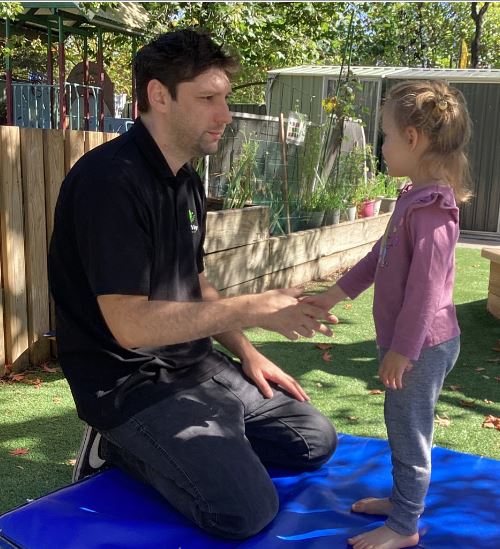Little is known about individuals' perceived benefits and risks associated with sports, despite their significant influence on people's intentions to participate. While a growing body of evidence underscores the advantages of rough-and-tumble play (R&T) in young children, it remains one of the most challenging forms of play to support in early childhood education and care (ECEC) settings.

Concerns from some educators and psychologists often centre on the belief that contact sports—such as karate, martial arts, or wrestling—foster aggression in children. However, research indicates that, quite the opposite is true: contact sports do not promote aggressive behaviours; instead, they can help children learn self-regulation and teamwork. In fact, studies suggest that sports like football may elicit more aggressive behaviours than traditional contact sports, highlighting the complexity of understanding how different types of physical activity affect children's behaviour.
At Woden Valley Early Learning Centre, eight years ago, we made a conscious decision to embrace rough-and-tumble play rather than restrict it. This approach has led to notable positive outcomes: we have observed a significant reduction in incidents related to spontaneous wrestling and rough play, as well as decreased aggression among the children, particularly among boys.
By providing a controlled environment where rough-and-tumble play can be framed as a sport with established rules, we foster respect, consent, and other valuable learning opportunities. This structured approach not only allows children to engage in natural developmental behaviours but also promotes essential skills such as time management and teamwork.
In summary, allowing children to engage in rough-and-tumble play in a safe and controlled environment nurtures their social and emotional development, ultimately cultivating a positive atmosphere for exploration and growth. As more ELCs recognize the value of this play, we can contribute to a broader understanding of its role in childhood development and wellbeing.
Please find attached research documents below if you wish to further educate yourself in this fascinating topic.
Research documents:
Children’s Rough-and-Tumble Play in a Supportive Early Childhood Education and Care Environment - https://www.ncbi.nlm.nih.gov/pmc/articles/PMC8507902/
Measuring Sports’ Perceived Benefits and Aggression-Related Risks: Karate vs. Football - https://www.ncbi.nlm.nih.gov/pmc/articles/PMC7849355/





Kommentare